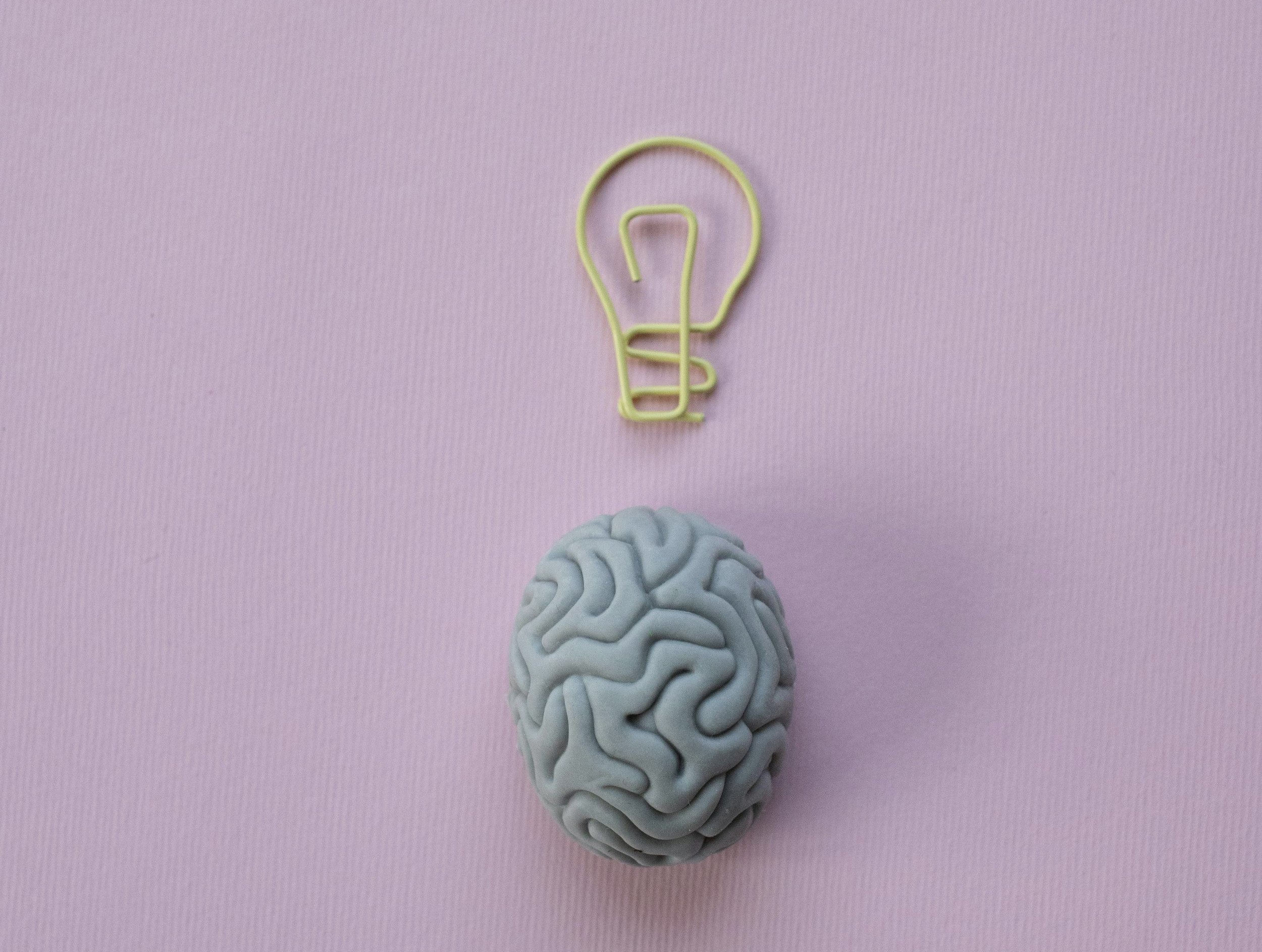
The Cortisol Curve: Stress Regulation and Adrenal Fatigue in New Mothers
Motherhood is beautiful—but it’s also biologically intense. Behind the midnight feeds and nappy changes, your body is managing something monumental: cortisol regulation. This essential hormone drives your ability to cope, adapt, and recover—yet for many new mothers, the cortisol curve gets disrupted. The result? Burnout, overwhelm, and in some cases, adrenal fatigue.

Neuroplasticity & Motherhood: How Your Brain Rewires Postpartum
Becoming a mother doesn’t just change your lifestyle—it quite literally reshapes your brain. Thanks to a powerful phenomenon called neuroplasticity, the postpartum period is marked by fascinating changes in neural structure and function. But what does this mean for your day-to-day life as a new mum?

Nutrient Partitioning in Pregnancy: Why Your Body Feeds Baby First
Pregnancy is often described as miraculous — and when you look at how the body manages nutrients, it’s not hard to see why.
From the moment of implantation, your body begins a process called nutrient partitioning. It’s a biological strategy that ensures your baby gets the nutrients they need to grow, often even at your own expense.

Prepping Your Gut for Pregnancy: The Microbiome-Fertility Connection
Your gut microbiome — the ecosystem of trillions of bacteria in your digestive tract — affects nutrient absorption, hormone regulation, inflammation, and immune function. Each of these processes contributes to your fertility and your body’s ability to support a healthy pregnancy.

Postpartum Thermoregulation: Why You’re Sweating, Shivering, or Freezing
You’ve just had a baby, your body’s been through a monumental event, and suddenly you’re waking up drenched in sweat — or shivering under three blankets. These unexpected postpartum temperature shifts are more common than you might think.

The Uterus: Your Baby’s First Home and Birth Muscle
Breastfeeding is natural, essential and protected by law—but doing it in public can still feel daunting. Whether you’re a first-time mum or a seasoned parent, feeding your baby outside the comfort of home can stir up anxiety, uncertainty, and occasionally unwanted attention.

Breastfeeding in Public: Confidence, Covers & Knowing Your Rights
Breastfeeding is natural, essential and protected by law—but doing it in public can still feel daunting. Whether you’re a first-time mum or a seasoned parent, feeding your baby outside the comfort of home can stir up anxiety, uncertainty, and occasionally unwanted attention.

When Is the Right Time to Start Weaning?
Weaning can feel like one of those parenting milestones that sneaks up on you. One moment you’re learning how to hold your newborn, the next you’re staring down the baby aisle wondering if it’s time to offer a spoonful of purée or a piece of banana. It’s messy, exciting, and emotional all at once — because this isn’t just about food. It’s about watching your baby take their first step into independence.

Pregnancy Hormones: What’s Flooding Your Body (and Why)
Pregnancy is a time of astonishing transformation. Physically, emotionally, and mentally, your body becomes the setting for one of life’s greatest feats—creating and nurturing new life. But behind every physical change, every emotional wave, and every flutter of new sensation, there’s a powerful hormonal symphony playing just beneath the surface.

Vitamins & Supplements in Pregnancy: What’s Really Necessary?
Pregnancy comes with a whirlwind of advice – and it’s easy to feel unsure about what’s really essential. When it comes to vitamins and supplements, some are strongly recommended because they directly support your baby’s healthy development and your own wellbeing.

Delayed Cord Clamping: Benefits, 'Wait Until White', and NHS Guidance
Delayed cord clamping (DCC) is an evidence-based birth practice where the umbilical cord is not clamped immediately after delivery. Instead, healthcare professionals wait for at least one minute—or until the cord turns white and stops pulsating—before clamping. Supported by NHS and NICE guidance, DCC is increasingly standard in UK maternity care for its benefits to both term and preterm infants.

Understanding the Physiology of Labour: What to Expect
Pregnancy is a time of change—and with change can come anxiety, excitement, and uncertainty. Whether you're attending antenatal education in Tunbridge Wells or preparing from home with online antenatal classes, incorporating mindful breathing into your daily routine can offer a powerful anchor through it all.

The Benefits of Mindful Breathing in Pregnancy
Pregnancy is a time of change—and with change can come anxiety, excitement, and uncertainty. Whether you're attending antenatal education in Tunbridge Wells or preparing from home with online antenatal classes, incorporating mindful breathing into your daily routine can offer a powerful anchor through it all.

Why Iron Matters in the Third Trimester
As your baby grows rapidly in the final months, your blood volume expands by as much as 50%. This physiological shift helps deliver oxygen and nutrients through the placenta. But it also means your body needs significantly more iron — to produce enough haemoglobin to support both you and your baby.

Your First Antenatal Appointment: What to Expect
The first antenatal appointment—often called the booking appointment—typically happens between 8 and 10 weeks pregnant. It’s your official entry into maternity care and helps build the foundation for a healthy pregnancy.

How to Prepare for Your Postnatal Recovery Before Giving Birth
There’s a great deal of emphasis placed on planning for labour—what to pack in the hospital bag, understanding the stages of birth, learning about pain relief. But the truth is, birth is just the beginning. What follows, often with less guidance, is the fourth trimester: a time of physical healing, hormonal recalibration, emotional shift, and learning how to care for a newborn while also caring for yourself.

How Sharing Your Birth Story Can Help You Heal
Childbirth is a profound physiological and psychological event. While it’s often romanticised in culture, the reality is far more complex. For many women, birth leaves behind not just stretch marks and scars—but psychological imprints that quietly shape their postpartum experience.

What to Ask at Your 6-Week Postnatal Check-Up
The six-week postnatal check-up marks a pivotal moment in your recovery journey. It’s more than a tick-box on your postpartum calendar—it’s a chance to refocus on your health, body, and emotional well-being after giving birth. Whether your experience was smooth or complicated, this appointment is a space to ask honest questions and advocate for your care.

5 Ways to Support Your Mental Health After Giving Birth
Giving birth is a transformative experience, both emotionally and physically. As joyful as welcoming a new baby can be, it’s also a time of significant adjustment and vulnerability. Supporting your mental health postnatally is just as vital as caring for your physical recovery. Here are five effective ways to nurture your mental wellbeing after giving birth.

7 Signs You Might Be Experiencing Postnatal Anxiety
Welcoming a baby into the world is a monumental life event. While many new mums expect to feel joy and fulfilment, it’s not unusual to feel overwhelmed, worried, or even fearful. These feelings can go beyond the common "baby blues"—you may be experiencing postnatal anxiety.

